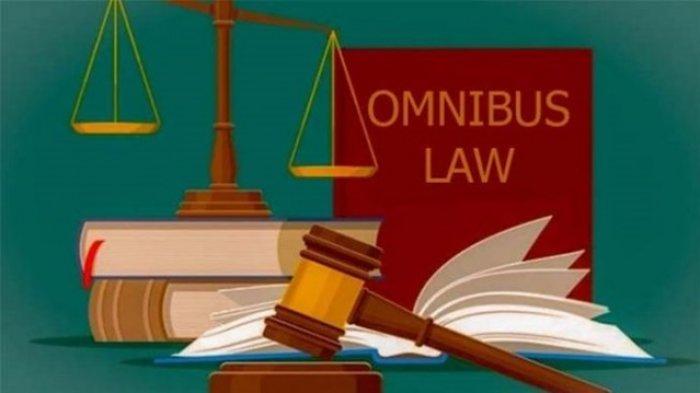The Job Creation Law Tightens Permits for Transfer of Land Functions
By: Yuga Kurniawan
Control related to the conversion of paddy fields function has been tighter with the issuance of the Job Creation Law (Ciptaker Law). According to the Director General of Control and Control of Land and Space at the Ministry of ATR / BPN, Budi Situmorang, with the Ciptaker Law, the conversion of paddy fields can no longer be arbitrary. There are lengthy licensing requirements that must be passed if you want to convert rice fields to non-rice fields.
The existence of the Work copyright Act is considered to have a positive impact on the agricultural sector, especially in terms of land use alif. Currently, the land use change permitted under the Ciptaker Law only applies to the public interest and for the national strategic program (PSN). That, too, still has to go through several other strict requirements.
Budi said, in the Job Creation Law, administrative sanctions were imposed, one of which was demolishing (a building built on a rice field) and the most serious punishment. That is the ultimate ultimatum, if it is no longer possible to be subject to criminal law or human victims such as the natural disaster in Sumedang, where 40 people died, therefore his party will carry out a criminal forum later.
In addition, from the viewpoint of controlling the use of space, it has become clearer. According to Budi, in a government regulation (PP) derived from the Ciptaker Law, in the implementation of spatial use there is a chapter on controlling spatial use. In it, control zoning has been determined.
The Job Creation Law and its derivatives have also stipulated the criteria for rice fields that are definitely not allowed to be converted into non-rice fields. One of the paddy fields that is definitely not allowed to be converted is premium rice fields. Premium rice fields are paddy fields which, if converted, can have an impact on other rice fields or the surrounding environment.
So that if there is a request for a change of function we will check it up to premium rice fields or not? He has an impact on taking technically irrigated rice fields, right? Because we’ve been doing irrigation for so long.
Other rice fields that are forbidden to be plucked are those that have high soil productivity of up to 6 tons per hectare and the planting index can be more than 2 times a year.
After that, it will be checked on the layout. If the spatial plan still remains, the rice fields will also be rejected. But if it turns out that the spatial plan is not a rice field either, then here we will do the recommendations.
Budi Sitomorang has also said that it is not true that the Ciptaker Law has the potential to threaten the stability of national food because infrastructure development is increasingly relaxed through the broom sweep law.
Budi said that his party controlled the conversion of paddy fields to maintain food security.
According to 2011 data from the Ministry of Agrarian Affairs / BPN’s rice fields, Indonesia has 8.1 million hectares of rice fields. Then in 2013, that number dropped to 7.75 million hectares.
Then the decline continued in 2018 until it was only 7.1 million hectares. From there he said, it can be concluded that land conversion had increased long before the implementation of the Ciptaker Law with a range of 100 thousand hectares to 150 thousand hectares per year.
Meanwhile, President Joko Widodo (Jokowi) has issued presidential regulation Number 59 of 2019 concerning control over the conversion of paddy fields. To implement this, the ministers work together to save rice fields from changing functions.
In the Perpres, Jokowi ordered the ministers to make efforts to control rice fields.
There are several steps taken to save rice fields from being eroded. The first step is a map check. That’s because rice fields can only be saved if the available maps are good.
The second step is related to spatial planning. The government will make spatial data to find out where the fields will be saved.
Then the issue of incentives, because we will lock people’s land so that it cannot be transferred. Then, regarding the competition between food crops and industry, there must be a rule based. But this is just the first meeting for the Perpres.
Later there will be further discussion at the next meeting. According to him, all ministers and ministries were asked to discuss the issue.
Therefore, it is not true if the Job Creation Law and regulations formulated by the government such as the Presidential Decree can cause reduced productive land, these regulations were formulated for the sake of food security in Indonesia.
(The author is a contributor to the Cikini Press Circle and Students)
